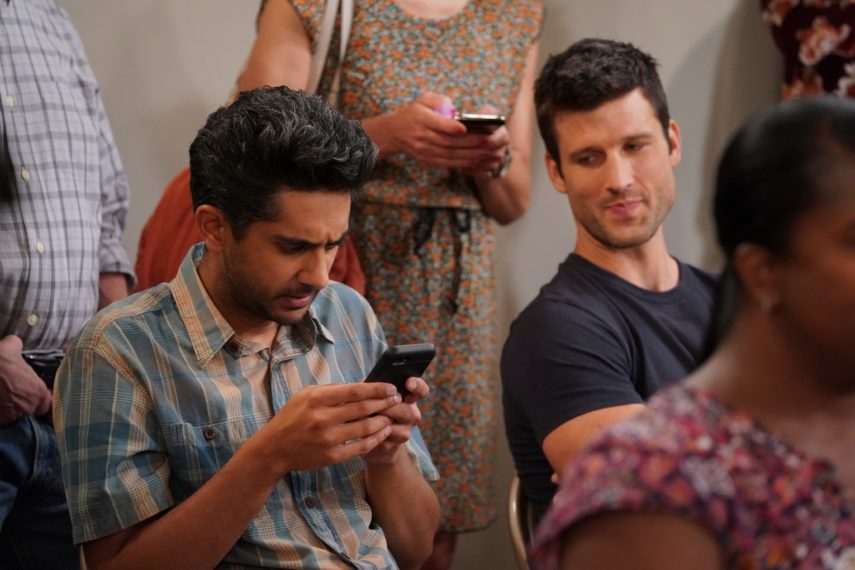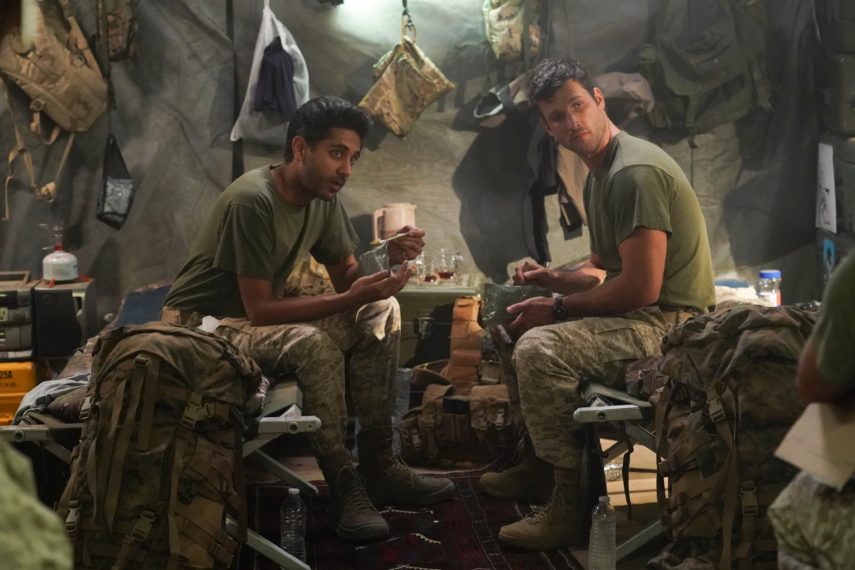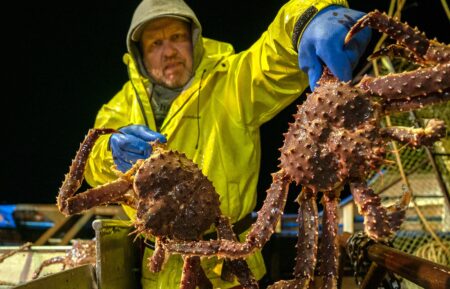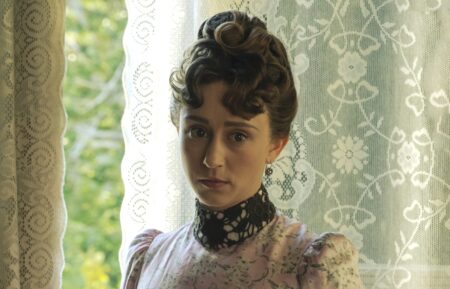‘United States of Al’ Ditches Laughter for Powerful Season 2 Premiere (VIDEO)
Like many Chuck Lorre-produced sitcoms (Mom, for example) an underlying current of serious drama is the norm, and that’s especially the case in the second season premiere of CBS comedy United States of Al. Set in Columbus, Ohio, the series follows marine vet Riley (Parker Young) as he welcomes his Afghan interpreter, Awalmir “Al” Karimi (Adhir Kalyan), into his family’s home, with Al adjusting to American customs providing many of the laughs.
However, in the October 7 episode, drama takes the lead as Al tries desperately to get his sister Hassina (Sitara Attaie) out of Kabul, with the help of Riley and Riley’s father, Art (Dean Norris), sister Lizzie (Elizabeth Alderfer), and estranged wife Vanessa (Kelli Goss). The special installment details the very real crisis that unfolded in the Afghan city in August. Watch an exclusive sneak peek above of a very tense situation as the gang awaits word from Al’s sister as to whether she has gotten herself to safety.
United States of Al executive producers Maria Ferrari and David Goetsch talked to TV Insider about crafting the story and what they hope audiences take from this episode that abandoned the usual laugh track to give even more weight to the subject matter.
I’m guessing this probably wasn’t the original plan for your season premiere, but it’s a very fitting one with what was unfolding in Kabul in August.
David Goetsch: On Monday, August 16, the day after that weekend that Kabul fell, we gathered in the writer’s room and our Afghan-American colleagues were as surprised as we were by how quickly things happened, and how quickly they had to respond to try to get their own family members out. And so as that was unfolding, we talked about, well, should we write about this? Should this be the first episode? And they were very supportive of this idea of covering it. Over the next few days, we watched how our colleagues connected with our military advisor, Chase Millsap. And that last scene where Al and Riley are talking to Hassina and a Marine is something that is very similar to what Chase ended up having experienced trying to get [show writer] Habib Zahori’s siblings out. And so we felt like we had this unique opportunity to tell a story that we were watching.

CBS
There has always been this layer of seriousness due to of war and the effects of war in the show from day one, but this episode didn’t have any laughter at all.
Maria Ferrari: That’s correct, there’s no laughter through this episode, it didn’t feel appropriate.
Normally you might even have a B or C story to balance out the main story but not this time. How did you come to that plan for the episode?
Ferrari: I don’t think we ever entertained the idea of a historic cutaway because the whole idea was to capture a process of waiting and being single-mindedly focused so I think to give the audience a break, it felt like a cheat to us.
Goetsch: The first stage was us sitting around a snap and counting the timeline and what would be the corresponding scenes or actions that might happen with Riley and Al and Hassina. It was almost like a documentary first stage to it, in my opinion, and then at some point, we had to be like “OK, how do we make this an episode?”
Ferrari: There was a lot of news and a lot of contradictory news, like the AP’s version of events didn’t always match the press that was coming through here. So the first thing they had to do was figure out, OK, what actually happened? You were sort of choosing things that were meaningful to our writers that they wanted to include and that they wanted to see. We tried to build one that felt the most emblematic for us of what that experience felt like.
There are a few flashbacks in the episode but one goes back to when Al and Riley are in service in Afghanistan. What was the purpose of showing us that scene?
Goetsch: Even in the pilot, that last scene of the pilot is a flashback because it felt important to share at least half of what Riley and Al went through [over there]. And so in having this production that normally takes three days, it’s 10 to five days, we saw there was opportunity to have a flashback you wouldn’t normally be able to have in that tent, lit that way. And to show Al being on the phone again with his sister and how Riley watched Al and to see how connected these guys really are.
And how great that you have this incredibly funny cast that can also turn on a dime and bring the drama when you need to. Everybody stepped up.
Ferrari: How lucky are we? They were absolutely fearless. I’m so impressed with them.
Goetsch: And I will also say that Liz Alderfer… was working behind the scenes with No One Left Behind and trying to help people and also working with Chase, our military consultant, who was trying to help people get out. So people pitched in, in this really moving way.

CBS
How will this storyline continue beyond the first episode? Will it?
Ferrari: Absolutely, we have to follow the story.
Goetsch: The story continues and it impacts them. In the second episode, you’ll see Al needing to get another job to help pay for Hassina, who doesn’t have a work permit and he will be impacted emotionally by starting to process what has been going on down the road. And we have this opportunity now to see what happens to Hassina, who is a refugee, and what happens to Al’s family in Kabul.
United States of Al, Season 2 Premiere, Thursday, October 7, 8:30/7:30c, CBS
From TV Guide Magazine
How 'Countdown' Recruited Jensen Ackles to Go Full 'Die Hard'
Countdown boss Derek Haas talks creating the character around Ackles, and the cast teases the “Avengers”-like team of the crime thriller. Read the story now on TV Insider.











